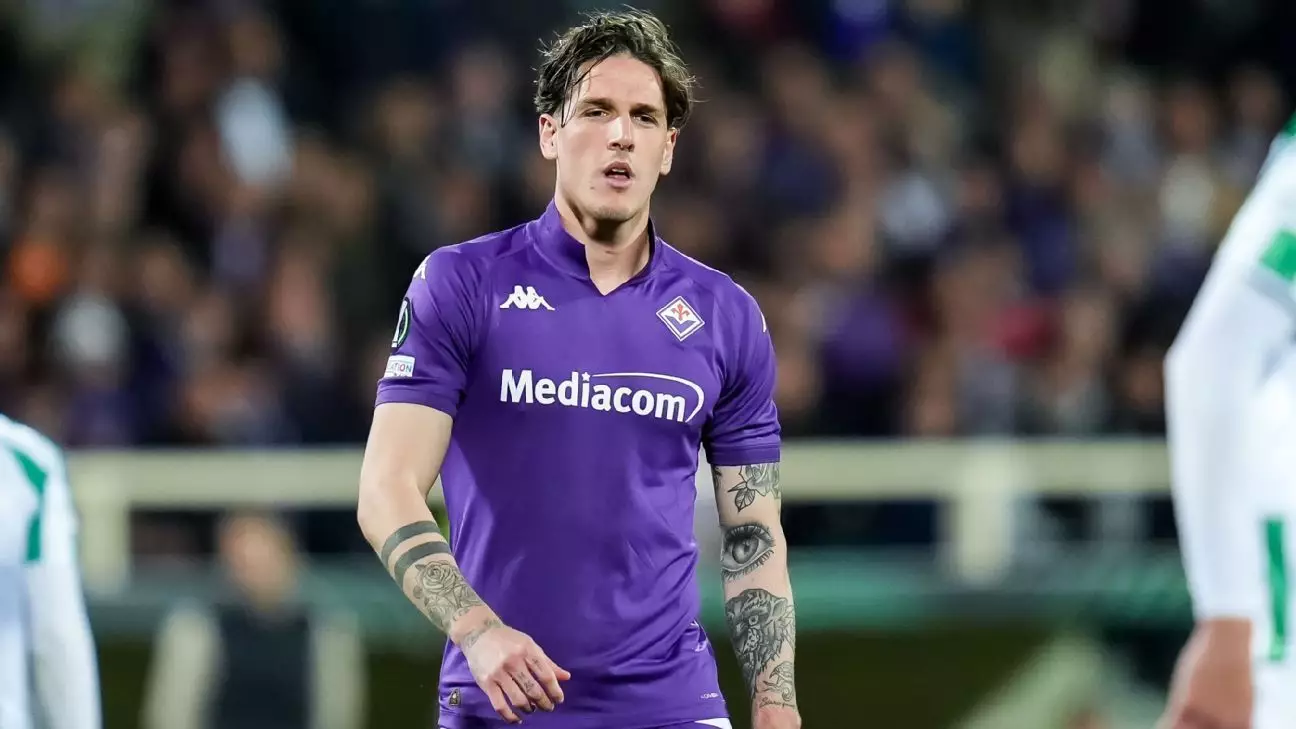In what has become a contentious episode in Italian football, AS Roma has publicly levied serious accusations against Fiorentina’s Nicolò Zaniolo, alleging violent conduct that raised eyebrows across the sporting community. The incident occurred after Fiorentina triumphed over Roma in a Primavera youth league semifinal. Reports indicate Zaniolo, on loan from Galatasaray and present in the stands during the match, allegedly entered the Roma locker room without permission. This transgression, coupled with claims of physical aggression towards two of Roma’s youth players, has ignited fierce discussions about professionalism and sportsmanship within football.
On the evening of May 26, 2023, the atmosphere at Viola Park, which is generally characterized by the competitive spirit of youth football, took a bizarre and disheartening turn. AS Roma’s statement described Zaniolo’s alleged actions as not just provocative but deeply concerning—hospitalizing two players due to physical confrontation. Such claims prompt a necessary evaluation of sports conduct, not merely as a violation of protocol but as a reflection of how far a player can stray from the ethos expected of professional athletes.
The Fallout: A Delicate Web of Accusations and Denials
In response to AS Roma’s allegations detailing Zaniolo’s purported intoxication and hostility, Zaniolo offered a rather defensive retort through social media, denying any physical aggression aside from a verbal altercation. His assertion emphasizes a growing trend among athletes: the quick shift to self-defense in the digital realm, where public opinion can swiftly turn against a figure accused of misbehavior. However, these back-and-forth statements beg the question of responsibility—how should athletes navigate an environment where every misstep is magnified in the public eye?
Moreover, the Italian Football Federation has opened an inquiry into the incident, an action that shines a light on both the accountability of players and the institution’s role in maintaining integrity within the sport. Given Zaniolo’s previous history marred by injuries and setbacks, it is baffling, yet tragically intriguing, to witness a rise in controversies overshadowing his potential on the field.
The Culture of Violence in Sports
Zaniolo’s reported actions are a prime example of an unsettling trend across various sports: the normalization of aggression and violence as acceptable forms of expression. This situation forces us to confront a deeply entrenched culture that sometimes glorifies confrontational behavior instead of promoting sportsmanship and respect among competitors. The consequences of previous generations’ attitudes toward aggression in sports resurface, calling into question the values we uphold.
AS Roma’s declaration that they stand firmly by their youth players in the wake of the incident can be viewed as a powerful statement that prioritizes the integrity of the game over a mere win-loss narrative. It is vital to recognize that while passion is an intrinsic component of sport, it should never translate into harm. The heartbreaking outcomes of Zaniolo’s alleged actions—one player undergoing significant recovery timelines due to an apparent push and another hospitalized—are stark reminders of the repercussions of unchecked emotions.
The Broader Implications for Italian Football
As the Italian football community grapples with the fallout from this incident, questions pertaining to player behavior on and off the field are taking center stage. Zaniolo, once hailed as Italy’s rising star, finds himself at a crossroads. Such allegations not only threaten his career trajectory but also impact the perception of future talent emerging from Italy’s robust youth systems.
The reality is that football is more than just a game; it embodies teamwork, discipline, and respect. With the camera flashing not just during matches but around every moment, athletes must remain vigilant in how they conduct themselves. A colossal opportunity lies ahead for the football community; they have the chance to redefine acceptable behavior, fostering an environment where respect reigns and where violent displays have no place, thereby cultivating a brighter future for the sport.
In the wake of accusations, investigations, and social media discourse, the specter of accountability looms large over Nicolò Zaniolo and AS Roma alike. The evolving narrative continues to assert itself—both as a personal journey for Zaniolo and as a pivotal moment for Italian football itself.

